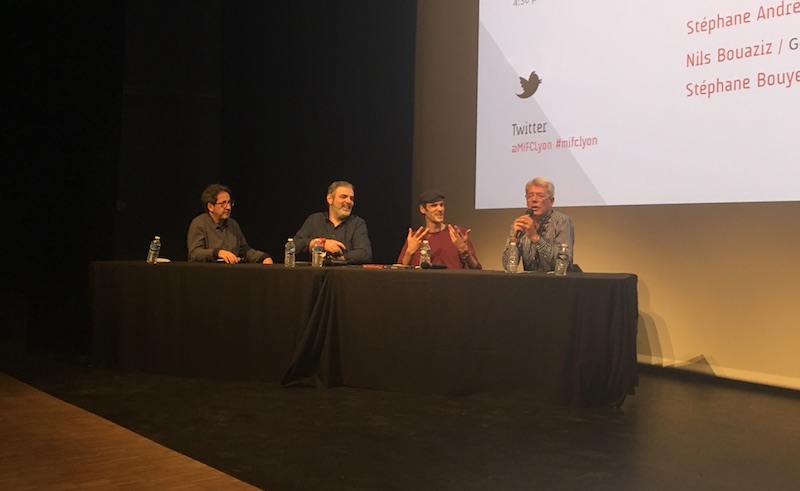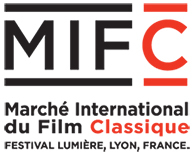From the raw object to the collector object: "CNC aids on physical video is indispensable"
2nd round of the first day about the DVD/BluRay edition, the round table moderated by Jérôme Soulet freed the speech.

Divided into four, the meeting DVD/BluRay and heritage books: from the raw object to the collector object began with three actors of alternative distribution: Stéphane André of ESC Editions, Nils Bouaziz of Potemkine and Stéphane Bouyer of Le Chat qui fume. And the statement is without appeal according to these independent publishers: where some, especially the large distribution, had looked down their model, the result is that it works. And even better than the one of the mockers. Indeed, if in general, the sale of physical video falls, the one of these circuits seems to maintain or even increase. Their strength? A proximity with the customer through dedicated stores and also internet sale that works particularly well for the fairly rare films they have in their catalog. And most of all their relationship with the institutional. And Stéphane André to cite in particular the network ADAV which allows some smaller publishers to cover their costs. The other major institutional player which maintain them is the CNC, which contributes up to 4.5 million euros a year to this sector: "They are indispensable," insists Nils Bouaziz. In a common voice, if the dream of the unique price stays alive, what allows them to remain the most flooded are quality editions, dug out and sought after because "the market has narrowed around a niche that seeks exception, the collector object ". The switch to VoD / SVoD? Not yet for them who prefer to delegate mandates with the exception of ESC Editions which announced next year switching to VoD.
The second part brought together three editors and a director who participated in the creation of these collector editions: Alain Carradore of Sidonis Calysta, Lisa Fontaine of Wild Bunch and Jérôme Wybon of the Atelier d'images. The DVD / BluRay is in free fall? Perhaps but a decline in pace compared to the early 2000s is rather positive according to them. Notably because it allows them the time to work more in depth the editions that they prepare with contents always more original, relevant and exceptional, especially for the classic film. The solution to the market downside is in quality and this is, they say, no longer possible to just make a simple DVD, unless you want to immediately put it at low prices. However, one remark is that heritage cinema is the one that suffers least from the loss of speed of DVD and BluRay. But for Alain Carradore, this is still an industry where you have to take risks, and that's why he paid his tribute to Manuel Chiche, who was the next guest, especially for his very successful edition of Night of the hunter.
The new Raymont-Chirat prize-winner then took the floor on the subject of video stores. True place of worship for all the cinephiles who have known the VHS, they all, more or less, disappeared. The fault of an evolution of the society towards the dematerialization. But Manuel Chiche has a theory: what if we were going backwards?. After launching a debate on the subject "what is the new video store?" which unleashed passions in the room, the president of The Jokers and La Rabbia developed his idea. For him, the lack of contextualization of the films on the platforms leads to a new counter-culture which is reflected in initiatives such as MUBI: "I do not believe in the hegemony of Netflix and Amazon, but for now the economic and editorial model has not yet been found ". A question remains unresolved concerning editorialization, especially from a generational point of view: should one still bet on an editorial emanating from publishers / distributors / broadcasters or should it be deported to other groups that would emerge of themselves?
Finally, Tiphaine Pirlot, CNC Video Project Manager, closed this session by recalling the support of the Center for physical video, notably developing the case of NUMEV which is a digitization aid for heritage films in physical video with obligation in BluRay. To benefit from it, the work must be a mostly French production, released in cinemas in France and whose operating visa dates from before December 31, 1999. She specified that in all, among the whole aids, 40% relates to classical cinema and the latter account for 60% of the amount of aid granted. She concluded by specifying that in 2018, the CNC would strengthen its action on the editorialization of films in physical video.


